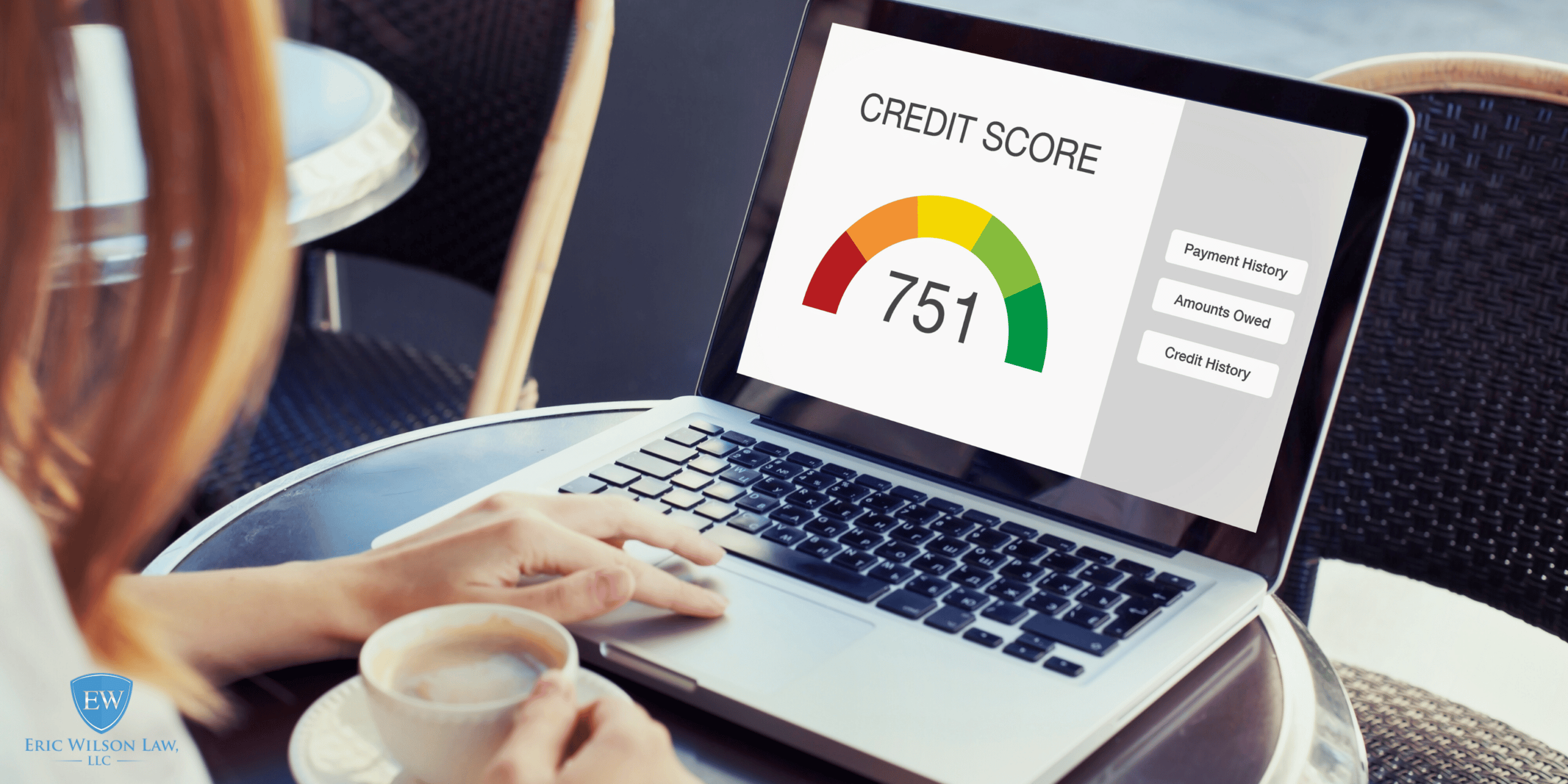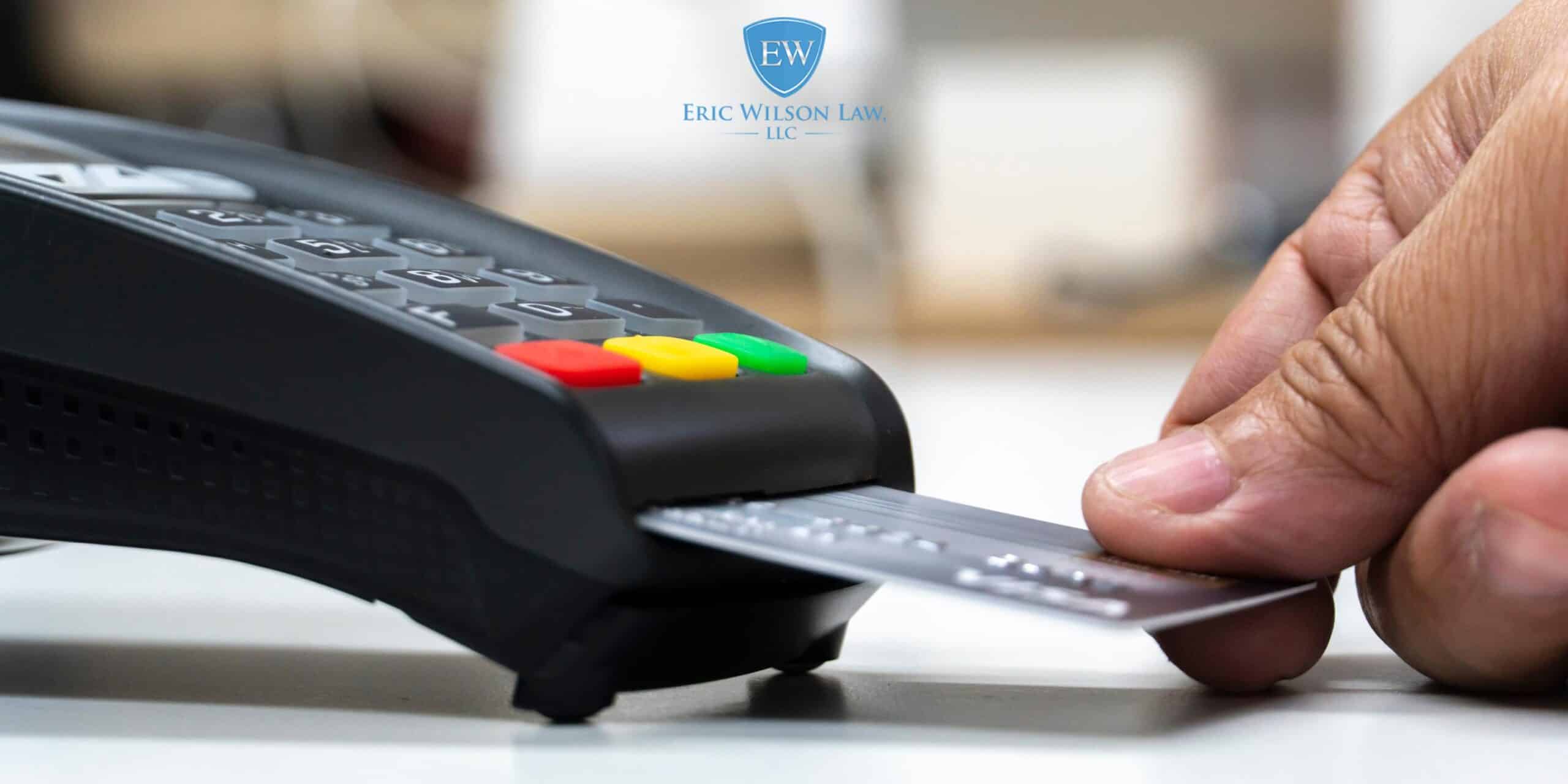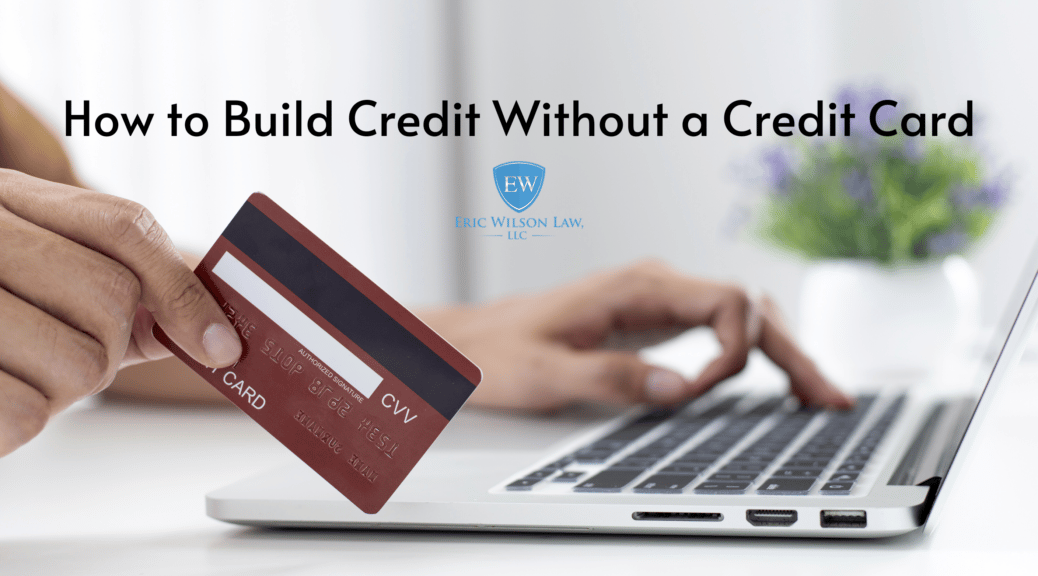You’ve likely heard about the importance of building credit your whole adult life. But what does this actually mean? Simply, credit is the metric that lending institutions like banks use to measure your fiscal responsibility. Because of this, the concept of credit and credit cards seem pretty inextricably linked. But still, many don’t know how to build credit without a credit card.
There are several reasons why you may want to do this that are not limited to experiencing financial trouble. Understanding how to build your credit without a credit card is a great way to ensure that your financial health stays in your own hands, at your own pace.
If you’re struggling with unmanageable credit card debt, you’re not alone, and it’s okay to ask for help. Eric Wilson has been helping his clients eliminate debt, build credit, and live happier lives since 1996. Call 205-349-1280 to schedule a free consultation.
What is Credit?
As mentioned, credit is the metric that a financial institution like a bank or credit union will use to gauge your financial health and responsibility. Your credit score is made up of several factors, including:
- Your payment history;
- The age of your accounts;
- On-time payments;
- Your credit utilization ratio;
- Existing debts, such as a credit card.
All of these factors combined make up your credit score, which is a number that represents your general financial standing, sort of like a grade. Each credit bureau calculates your credit score slightly differently, but they will all use the above factors in their consideration. Their final tally of your credit will appear on your credit report, which you can request for free once a year from each of the top three credit bureaus — TransUnion, Experian, and Equifax.

Benefits of Having Good Credit
Since your credit is taken very seriously by financial institutions, having good credit is a great way to make large financial decisions easier. For example, getting a loan or credit card is much easier with good credit. This is because good credit indicates that you make on time payments, you pay back your debts, and are otherwise responsible when it comes to borrowing money. This indicates that you are at lower risk for defaulting, or not paying them back, when further borrowing money. Low risk borrowers are what financial institutions, such as credit card issuers, like to see. Other benefits of having good credit include:
- Lower interest rates;
- More favorable loan terms;
- Higher credit limits;
- Higher borrowing limits.
The ranges for what is considered a “good” credit score may vary from each of the three major credit bureaus, however, anything in the range of 670 to 739 is generally considered good.
Consequences of Having Bad Credit
On the other hand, having bad credit, or a credit score under 579, can be a serious detriment to your personal finances. Bad credit can make it harder for you to get approved for an unsecured credit card, personal loan, or even a mortgage or rental. This can make it that much more difficult for you to build credit if you don’t have access to these credit accounts. Other consequences of bad credit could include:
- Higher interest rate on loans;
- Requiring a co-signer for any borrowing;
- Increased insurance premiums.
You get bad credit by doing things such as missing your monthly payments, having a high balance of outstanding debt, or having too many hard inquiries into your credit. Missing credit card payments and having lots of accounts open can also negatively impact your credit score.
How Does a Credit Card Help You Build Credit?
A credit card is the easiest way to start building credit, as it is one of the most readily available ways to open a line of credit, buff up your payment history, and practice making on time payments. There are two types of credit cards generally available — a secured credit card and unsecured credit card.
A secured credit card is a card that has a set credit limit, determined by a cash deposit you make upon opening the account. The reason you have to put down a deposit is to ensure that your credit card bill can still be paid, even if you aren’t actively making payments on it. This is a great account for people who have never had their own credit card, or are recovering from financial hardship like bankruptcy. It’s important to note that your credit limit with a secured credit card won’t go up for the life of the card.
An unsecured credit card is what we generally think of when we picture credit card accounts. This is an account with a limit set by the credit card issuer, based on your income and current credit score, rather than a cash deposit. An unsecured card allows you to borrow money from the issuer, with the promise that you’ll pay it back monthly.
How to Build Credit Without a Credit Card
If you don’t have a credit card or can’t get access to one, you can still work on building a positive credit history with the accounts you already have. You’ll want to audit the credit accounts you have open, and understand your current financial standing. This will help you understand how to apply good credit habits, like the ones listed below.
Pay Your Bills on Time
Getting in the habit of making recurring monthly payments on time is a great way to build credit and increase your credit score. This includes rent and utility payments, phone payments, and any other recurring charge to an outside party, as these are all reported and reflect on your credit report.
Setting up auto pay is a great way to make sure you don’t end up with late or missed payments. Just make sure you keep any account with the automated bill payments topped up.
Obtain One or More Loans
Getting approved for a loan that you can maintain is a great way to start building positive credit history. Certain loans can be better for this than others, including:
- Credit Builder Loans, which are different from traditional loans in that you make fixed monthly payments to a lender and then receive a specific amount of money at the end of the loan term.
- Secured Loan: This type of loan is backed by collateral, like a home or a car.
- Peer to Peer Loan: This is a type of online lending where people or business owners receive loans from individual investors.
- Federal Student Loans are a type of financial aid that allow students to pursue higher education.
A credit builder loan – and many other types of loans – can be better for building your credit score because their approval isn’t completely hinged on your current credit score. For example, unlike personal loans and auto loans (which rely on your income and credit score for approval) your FAFSA information is the biggest deciding factor for whether or not you’ll be approved for a student loan. These loans can make credit building efforts more accessible, particularly if you have limited credit history.
Become an Authorized User
If you simply can’t get approved for any new lines of credit, or can’t afford to open a new line of credit, then becoming an authorized user on someone else’s account can be a great option for establishing credit. An authorized user is someone who has access to an account’s funds, but can’t make any changes to the account itself, such as canceling it or extending the credit limit.
It’s important to note that once you become an authorized user on someone’s account, you’re inheriting their credit score and history. This is great if the account owner has a great credit score, but can negatively affect you and your credit if they don’t. You also shouldn’t become an authorized user, or take on an authorized user on someone else’s credit account without talking about the financial specifics. For example, the primary account holder may require fixed monthly payments in exchange for letting you become an authorized user. This is someone you’ll need to discuss prior to becoming authorized.
Use a Co-Signer
Similar to an authorized user, a co-signer can help you secure things like an apartment, private student loan, mortgage, or other type of personal loan. A co-signer is someone who assumes the financial responsibility of any personal loan they sign onto, in the event that the primary signer ceases making on time payments. Being a co-signer can be very low risk if you’re signing for someone you trust, and can be a great one to help someone build credit. However, if they aren’t dedicated to making smart financial decisions, you may end up in a sticky situation.
This is why it’s important to completely read the terms of any personal loan or agreement you’re thinking of co-signing. You may even want to hire a lawyer to help you navigate this process, especially if the primary signer bails on you.

Call a Tuscaloosa Bankruptcy Lawyer at Eric Wilson Law Today
If credit card debt is making your credit report and credit score suffer, it’s important to remember that there are still plenty of ways to build credit without getting another credit card. You can focus on keeping up with phone and utility payments while also taking out a credit builder loan, an auto loan, or even a federal student loan. For more professional advice on how to build credit without a credit card, speak with the experienced legal team at Eric Wilson Law.
Eric Wilson has more than 25 years of experience in helping his clients achieve debt relief through Chapter 7 and Chapter 13 bankruptcy. Even if you’re not ready to take the plunge into bankruptcy, Eric Wilson can still find another financial solution for you. Call 205-349-1280 to schedule a free consultation today.
Call a Tuscaloosa Bankruptcy Lawyer at Eric Wilson Law today for assistance in these, and other financial matters.


